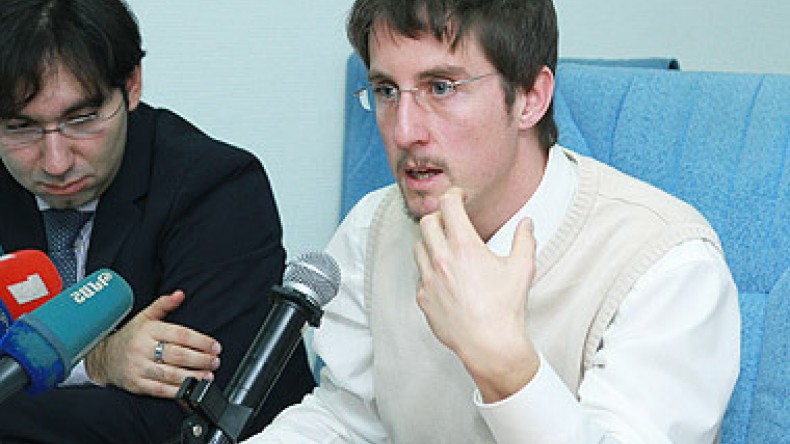
Michael Kambeck: If it hadn’t been for Egypt, Syria, etc., we would have seen much stronger EU engagement on Karabakh conflict
Panorama.am presents an interview with Dr. Michael Kambeck, Secretary General of the European Friends of Armenia (EuFoA) organization. Dr. Kambeck has recently edited and published a book on Nagorno-Karabakh titled “Europe's Next Avoidable War: Nagorno-Karabakh.” Panorama.am has talked to Dr. Kambeck about the book and its content.
- Dr. Kambeck, you have recently edited a book titled “Europe's Next Avoidable War: Nagorno-Karabakh”, which examines the ways Europe can prevent the outbreak of a new war in Nagorno Karabakh. Can you present a number of key points from the conclusion in this regard?
- The key conclusion is that the solution is blocked by the lack of political will of the conflict parties, mainly Azerbaijan. Blocking the Minsk Group’s proposals while bashing the Minsk Group’s ineffectiveness is a dangerous but obvious game played by President Aliyev. In this situation, a number of measures are possible on the side of the mediating countries and the EU, which are not yet exploited. In particular, the EU is yet to decide and publish concrete incentives for peace, meaning a post-Madrid-Principles programme, and also disincentives for war. There is still no binding arms embargo for this region of an ongoing arms race. And the EU could enforce several of the Minsk Group proposed confidence building measures, such as observers on the line of contact and a supervision mechanism for incidents on the line of contact. This could even be done only on the Armenian side, if Azerbaijan continues to refuse this for their own side. There is still no binding arms embargo for this region of an ongoing arms race. And the EU could enforce several of the Minsk Group proposed confidence building measures, such as observers on the line of contact and a supervision mechanism for incidents on the line of contact. This could even be done only on the Armenian side, if Azerbaijan continues to refuse this for their own side.
- What implications can a war in Nagorno Karabakh have for Europe and its security? Why should a European care about this?
- The consequences for the entire region would be so great, and no one could predict whose troops and whose refugees would end up where... ...let’s not even speculate about this. Europe cares! If it hadn’t been for Egypt, Syria etc I believe we would have already seen much stronger EU engagement on this conflict.
- Given Armenian president’s pledge to join the Russia-led Customs Union how do you assess the perspectives of further cooperation between Armenia and the EU?
- Armenia now needs to find out how much it is still a sovereign decider of its foreign policy. Russia has no interest in solving all economic problems in the country, which need to be resolved. These factors will decide the margin for maneuvering. Once the Armenian government understands these margins, they can formulate goals. The EU interest is only to have a stable and prosperous neighbourhood. Given the various experiences of instability and even war in the South and North Caucasus, Russia shares this interest. It remains to be seen how much they will be able to act based on this interest.
- Based on these common interests how then would you assess the perspectives of EU-Russia cooperation in Armenia?
- Rationally, there is a large amount of common interests between the three, but Moscow now chose to focus on sending out a very strong and ideologically motivated message. Hence we now need to reassess the situation and see if rational common interests can still be realized or if the game has changed. Some EU politicians, even the very soft-power minded, have reacted to the recent Russian pressures by changing their approach to Russia into a strategic and ideological one. Ideology on both sides would create lose-lose situations, while realizing common interests rationally creates win-win situations. I therefore cannot believe that ideology will prevail for long. Neither the EU nor Russia is economically in such a comfortable situation that would enable them to afford the luxury of such ideological zero-sum games.
The interview was conducted by Nvard Chalikyan
Newsfeed
Videos






























